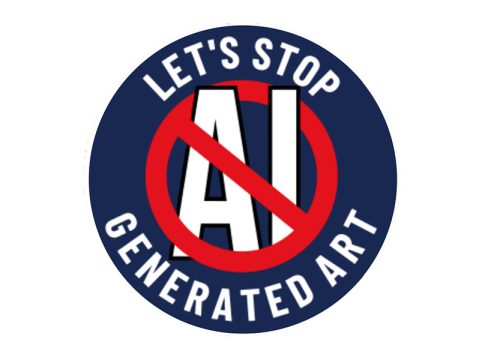Animation Unions Unite Against AI Threats
A growing coalition of international animation unions, federations, and organizations is sounding the alarm over the increasing integration of artificial intelligence in the animation industry. This unprecedented unity—comprising over two dozen entities from various countries—has issued a call to action, emphasizing a united front against what they perceive to be the harmful impacts of AI on creativity and job security.
The Backbone of Animation Under Siege
Animation has faced significant challenges in recent years, driven by the volatile economics of streaming and the adverse effects of the pandemic’s spending spree. Workers have borne the brunt of these shifts, experiencing mass layoffs, studio closures, and budget reductions. The coalition argues that the emerging trend of using generative AI—machines that can produce content based on minimal input—poses an additional existential threat to the industry.
“We are dealing with a copycat technology,” the coalition claims, asserting that generative AI merely reproduces existing works, drawing from the vast pool of creative output to which it has been exposed. This raises critical concerns about intellectual property rights and the sanctity of human creativity.
The Technology and Its Implications
Generative AI, once heralded as a revolutionary tool, is now viewed with skepticism by industry professionals. Unlike a traditional tool that supports artists, these AI systems are seen as instruments of disruption, potentially erasing jobs and diluting cultural richness.
The coalition notes concerns that AI—often viewed as a futuristic marvel—often embodies the biases of its developers, reshaping creativity to fit narrow parameters rather than celebrating the diversity of human expression. As such, the richness of the creative process is threatened by a technology that aims to operate without human input.
Environmental and Ethical Concerns
Further complicating the issue are profound environmental and ethical ramifications. The computational demands of training and deploying generative AI systems lead to a substantial increase in electricity and water usage, stressing local resources and raising carbon footprints.
In light of these challenges, the coalition emphasizes the necessity of ethical frameworks around AI deployment. They advocate for responsible guidelines that highlight:
- Consent: Creators should have a say if their work is used to train AI.
- Compensation: Artists deserve fair remuneration for any usage of their creative outputs in AI-generated work.
- Control: Creators need the power to govern how their work is utilized by these systems.
A Call for Action
The coalition is not merely issuing warnings; it’s also mobilizing grassroots support. In a bid to rally the community, they have organized a public town hall during the upcoming Annecy International Animation Festival, inviting creative workers, students, and media personnel to join the conversation about the future of their industry.
Amid this backdrop, the message is clear: regulators, lawmakers, and industry leaders must prioritize the protection of cultural and creative sectors. The unions urge collective action to preserve artistic integrity and job security as the industry navigates the uncharted waters of AI integration.
Conclusion: Protecting the Future of Animation
As the dialogue around AI continues to evolve, the animation community stands at a crossroads. With the involvement of diverse organizations—ranging from unions to industry associations—the call to protect human creativity and labor is echoing louder than ever. If the industry is to thrive amid the relentless march of technology, the voices of its creative workers must be amplified and prioritized.

Writes about personal finance, side hustles, gadgets, and tech innovation.
Bio: Priya specializes in making complex financial and tech topics easy to digest, with experience in fintech and consumer reviews.

